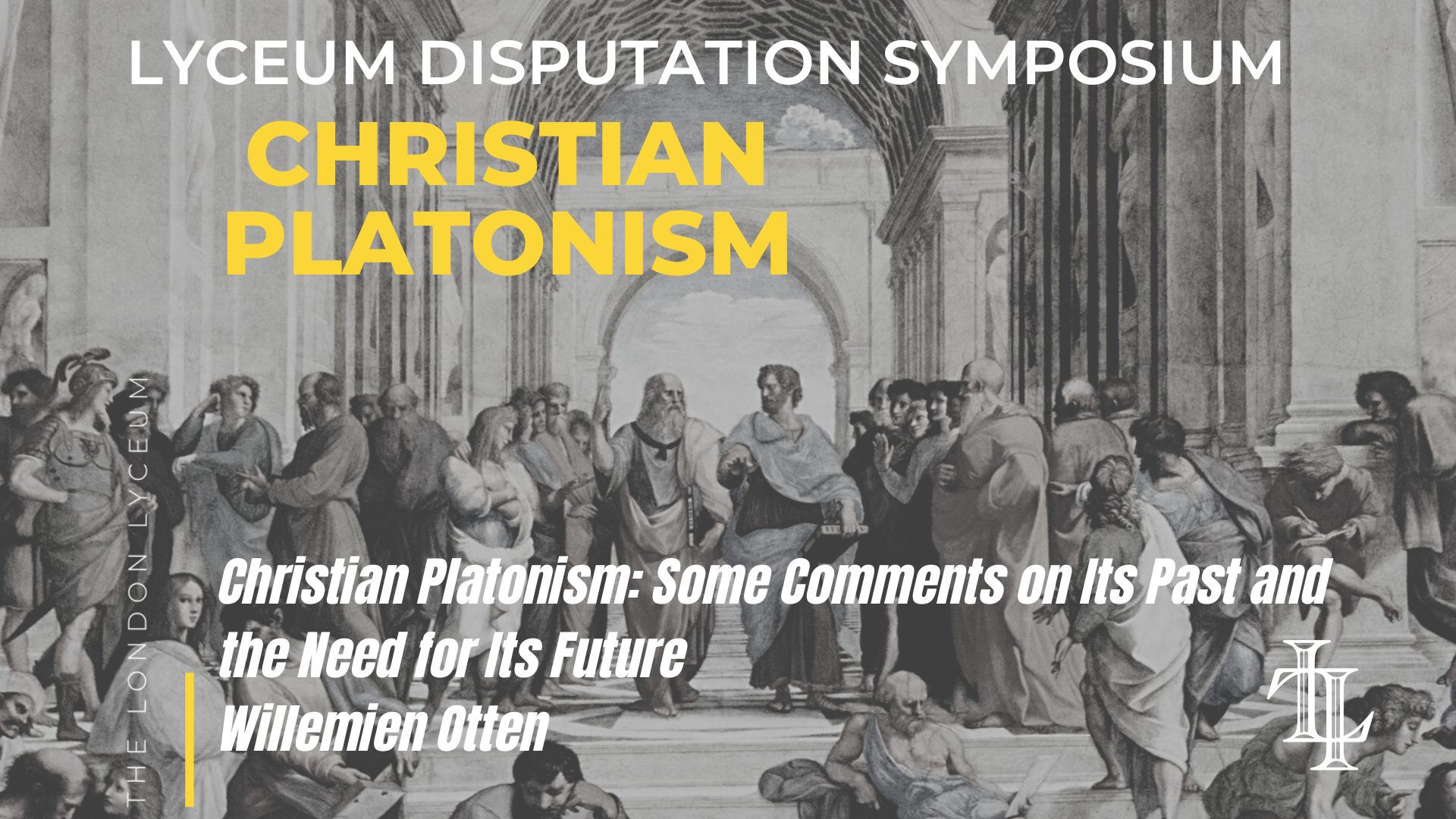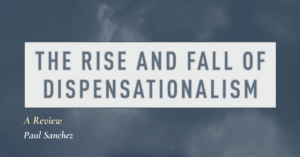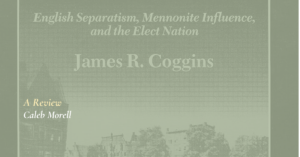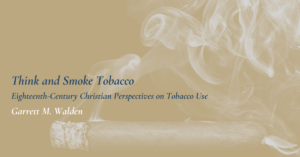Editor’s Note: This is part 3 in our Lyceum Disputation series considering the nature and potential necessity of contemporary “Christian Platonism” as exemplified here and here. Stay tuned for further installments. As with all our work, the London Lyceum publishes a range of viewpoints to encourage thinking.
A couple of years ago, I went on the London Lyceum podcast to discuss some of Craig Carter’s ideas on the metaphysics of Nicaea and so-called Christian Platonism. In this post, I want to return to the topic by offering some critical reflections on Carter’s two part series entitled “Why Should We Affirm Christian Platonism?” In what follows, I will offer a wild ride through the theological musings of Carter. I will start with trying to define Christian Platonism, and then I will consider some of the targets of Carter’s criticisms. I will conclude by considering what the options are for the future of evangelical theology.
What is Christian Platonism? The Search for a Definition
In good analytic fashion, I would prefer to start with some definitions of key terms before assessing any arguments. However, after reading Carter’s two part series, I find myself at a loss for how to define Christian Platonism. According to Carter, it is the view “shared by almost all your theological heroes prior to 1800.” The fact that theologians throughout church history have disagreed on all manner of philosophical and theological topics makes me uncertain what all my favorite dead guys share in common. I know they agree on basic Christian claims like the incarnation and resurrection happened, some kind of atonement has been offered, God is somehow providentially in control of the unfolding of history, and God is in some sense triune. But so do the majority of the contemporary theologians that Carter disagrees with. I also know that the heroes disagree on the details of how those doctrines should be understood. The same goes for the contemporary thinkers that Carter is critical of. So I need some more details from Carter.
Carter carries on by saying that Christian Platonism is Augustinianism plus some sort of affirmation of the Nicene Creed, plus an affirmation of creation ex nihilo, plus an affirmation of divine simplicity. At this point, I find myself a bit confused. Does this commitment to Augustinianism rule out the Eastern Orthodox? A comment towards the beginning of Carter’s article suggests the answer is yes, but later on he seems to want to bring the Eastern Orthodox back into the camp of Christian Platonism. This raises a particular question. How much of Augustine’s thought is included in Christian Platonism? Does Christian Platonism include Augustine’s doctrine of predestination, original sin, and original guilt? If so, then lots of your favorite dead theologians will have some disagreements here. Does Christian Platonism include Augustine’s substance dualism? If so, Aquinas will have very serious disagreements with this. Does Christian Platonism include Augustine’s political theology? Again, if so, there will be a great deal of disagreement among my favorite dead theologians. Hence, I find myself uncertain what exactly Christian Platonism is.
Carter says, “Augustine accepted the Platonic idea that the creation is caused by a simple, immutable, eternal, self-existent First Cause and he identified that First Cause with the God of Scripture.” I find this odd since this is not exactly Plato’s understanding of things. For Plato, the pre-existent material world is fashioned by a demiurge, it is not created. Of course, I might be mistaken in thinking that Plato’s views are fully representative of Platonism. Perhaps there are better representatives of Platonism that Carter has in mind. For example, Aristotle.
According to Carter, “Aristotle was a Platonist.” In case you don’t know who Aristotle is, let me give you a quick history lesson. Aristotle was an ancient Greek philosopher who is famous for disagreeing with Platonism and developing a rival philosophical school of thought known as Aristotelianism. Aristotle also affirmed the eternality of the universe, and that God is not the efficient cause of the universe. Moreover, Aristotle’s God does not know any contingent truths, and is thus unaware of the universe and cannot possibly care about the universe.[1] Given all of this, I am once again confused as to what Carter means by Platonism. Aristotle is not affirming the doctrine of creation ex nihilo that Augustine would affirm. Nor is Aristotle affirming an account of omniscience that Augustine wants. Since Aristotle’s God is unaware of the universe and unconcerned with the universe, it will be difficult to get anything that looks remotely like Augustinian providence or a doctrine of the incarnation. Nor is Aristotle affirming the same metaphysical system as Plato and Augustine. So I can’t help but think that Carter’s Christian Platonism is an incredibly nebulous category that fails to map onto historical reality. But I don’t want to be too hasty, so let me consider a few more claims from Carter’s article about Christian Platonism.
Carter also says that Thomas Aquinas, and Thomism in general, is a subset of Christian Platonism. Perhaps another quick history lesson is in order. Thomas Aquinas is a medieval Christian theologian and philosopher who is famous for developing a system of Aristotelian thought. This was highly controversial at the time since Aristotelianism conflicts with many different aspects of Platonism. Aquinas was quite critical of various ideas within Platonism, and explicitly rejects them in his writings. When Carter tells me that Aquinas is a Christian Platonist, I once again find myself confused as to what Christian Platonism is. To be sure, there is no doubt in my mind that Platonic ideas, and Augustine’s ideas, had a profound influence on Aquinas. Nor do I deny that Augustine and Aquinas have a great deal of agreement on various theological topics. I am merely expressing my bafflement over what is and is not Christian Platonism.
For the moment, let’s include the Thomistic theological system in the realm of Christian Platonism. I have a question. How much of the Thomistic theological system is included in Christian Platonism? I ask this question because Carter says he wants to include the Protestant scholastics in the Christian Platonist camp. The Protestant scholastics will disagree with Aquinas on all sorts of things such as the nature of the Eucharist, the way to organize a church, and so on. Or consider Aquinas’ controversial doctrine of analogy. Is this to be included in Christian Platonism? If so, Augustine, Anselm, John Duns Scotus, and many others are not Christian Platonists. Should Christian Platonism include Thomas’ account of predestination and providence? If so, Scotists, Molinists, Calvinists, and Arminians will have all sorts of things to quibble about. The Cambridge Platonists will most definitely wish to resist Augustinian and Thomistic notions of predestination. But of course, the Cambridge Platonists might not be good representatives of what counts as Christian Platonism. Sure they are Christian and they are Platonists, but perhaps the Cambridge Platonists are not meant to be included in the list of favorite Christians prior to 1800.
As it stands, it looks like Christian Platonism is a gerrymandered category. As far as I can tell, Christian Platonism is to be defined as follows.
Christian Platonism: those views that Craig Carter agrees with.
To be sure, this definition will sound cheeky, and perhaps even dismissive. But one should keep in mind that I am one of those people who Carter will dismiss, without argument, as anti-metaphysical Hegelian liberal Protestant, an ahistorical Biblicist, or some other highly inaccurate assertion.[2] So there is a lot of dismissiveness to go around I suppose.
Who Are the Bad Guys?
Since Christian Platonism appears to be whatever Carter agrees with, it might be helpful to consider what Carter disagrees with. That could potentially help one develop a better definition of Christian Platonism. In Carter’s two part series, he offers a narrative that includes several villains. After all, every good story needs a bad guy. Carter identifies several different villains. These include pantheists, panentheists, Hegelians, ahistorical biblicists, anyone who revises or rejects divine simplicity, moral relativists who reject natural law theory, 19th Century liberal theologians, and the conservative evangelical Old Testament scholar John Walton. In other writings, Carter also lists theistic personalists, open theists, ecofeminists, theistic mutualists, and relational theology. That is quite the list of villains!
I find myself uncertain what these different villains have to do with each other. I guess they all disagree with Christian Platonism, but that just means disagreeing with Craig Carter. As I have pointed out elsewhere, it is often less than clear that Carter understands the positions he is criticizing. This two part series from Carter is no different.
Consider this juicy quote from Carter:
Modern theologians who seek to revise classical theism by abandoning or re-defining the doctrine of simplicity, often without being aware of how it functions in fourth and fifth century Nicene theology, think that what they are doing has nothing to do with the doctrine of the Trinity. They think that they can deny simplicity while remaining within Nicene orthodoxy, but they are unaware of the fact that this is not actually possible. My point is that the doctrine of the Trinity does not work in just any metaphysical system whatsoever. Modern naturalism imposes metaphysical constraints on the Christian doctrine of God that make Nicene Trinitarianism impossible to maintain. This issue is too seldom addressed by those with revisionist aspirations.
There is much to ponder in this passage that indicates that Carter is not accurately representing his opponents. First, consider someone like William Hasker or William Lane Craig. Each has demonstrated a deep understanding of Nicene theology, and the intricate problems surrounding the doctrine of the Trinity. Both of them reject the classical doctrine of divine simplicity because they think it is incoherent, unbiblical, and contradicts the very idea of a triune being. Both understand how divine simplicity is meant to function within Trinitarian thought, and both offer arguments for why simplicity cannot possibly fulfill that function. For example, divine simplicity says that anything intrinsic to God is identical to God. The Father and the Son are both intrinsic to God. Thus, the Father and the Son are identical to God. Given the transitivity of identity, the Father is identical to the Son. No Trinity!
Second, I wish to note an agreement with Carter. The doctrine of the Trinity does not work with just any old metaphysical system. I can agree with that. I can also agree that naturalism makes the Christian doctrine of God impossible. This is because naturalism is usually thought to be a denial of theism by people like Craig and Hasker. Perhaps Carter is right to say that the conflict between naturalism and Christianity is seldom addressed within debates over simplicity and the Trinity. William Lane Craig is working on his forthcoming philosophical systematic theology. Perhaps one should advise Craig to spend more time contemplating his commitment to naturalism when he writes his chapter on the Trinity. Or perhaps, contrary to what Carter says, modern naturalism has nothing to do with this particular debate, nor anything to do with Craig’s rejection of simplicity.
Consider this next quotation from Carter. I believe that it further demonstrates that Carter is not accurately representing the views of people he disagrees with.
Second, another example is the doctrine of creation ex nihilo, which is being questioned all over the place today even by conservative reformed and evangelical theologians such as John Walton. I readily admit that creation ex nihilo does not comport well with the Hegelian pantheism and panentheism, that is often conflated with the “scientific” view of the God-world relationship. In such cases, the doctrine of creation ex nihilo is working exactly as it was designed to do. Creation ex nihilo is a metaphysical implication of the doctrine of creation as derived exegetically from Scripture. It is a rejection of all mythological views of God in which God and the world are on the same plane of being interacting with each other in the way that creatures mutually affect one another. If this causes friction with “modern science” that is not because modern science is scientific, but rather because modern scientists are pantheists, which is a very different matter.
I find this passage utterly confused. To start, it is important to know that John Walton does not reject the doctrine of creation ex nihilo. He has explicitly affirmed the doctrine in multiple places on numerous occasions. Carter is simply mistaken.
Next, I can say that Carter is correct that pantheists and panentheists typically reject the doctrine of creation ex nihilo. (Philip Clayton being a notable panetheistic exception to this.) But what I don’t understand is who these people are that are supposedly confusing Hegelian pantheism with science. Who are these modern scientists who are affirming pantheism? I am sure there are a few, but we are hardly facing a massive resurgence of pantheism today from within the scientific community. I would be surprised if Hegelianism was all the rage among contemporary scientists because Hegel is insufferable to read, and incredibly difficult to understand. Combine that with the fact that the average scientist is too focused on what is happening at her workbench to concern herself with obscurantist philosophy, we don’t get a recipe for rampant Hegelian shenanigans.
This passage from Carter carries on as follows.
I think it is worth pointing out that much of the hostility directed against Christian Platonism (and subsets of it such as Thomism) originates in a desire to avoid challenging modern metaphysical doctrines such as panentheism, naturalism or materialism. Once a person decides to take these false doctrines on, one will find Christian Platonism to be an ally worth having in that fight.
I find this even more baffling. Consider someone like Alvin Plantinga. Ignore the fact that Plantinga is a platonist about abstract objects. Plantinga is one of the bad guys because he rejects divine simplicity and is critical of Thomism. Is Plantinga’s rejection of Christian Platonism originating in a desire to avoid challenging modern metaphysical doctrines such as panentheism, naturalism, and materialism? This seems doubtful since Plantinga has been a long-time critic of naturalism and materialism, and has never been a fan of panentheism or pantheism. If I were to take a guess, I would say that Plantinga rejects the doctrine of divine simplicity because he thinks it is incoherent. My guess is based on his published arguments against divine simplicity, but I leave open the possibility that Plantinga secretly harbors some hidden affections towards naturalism that is really the driving force in his rejection of Thomistic doctrines.
Maybe Plantinga is a bad example because that would further indicate that Carter is not accurately representing his opponents’ views. For the sake of being charitable to Carter, I will discuss someone that Carter does have in mind—John Peckham. Peckham is a Christian theologian who has been highly critical of panentheism in multiple publications. He has explicitly affirmed and defended the doctrine of creation ex nihilo, and the doctrine of analogy. He is no fan of naturalism because he really loves God. Yet Peckham is going to be on the list of people who reject Christian Platonism since Peckham rejects the Thomistic notion of divine simplicity. Why does Peckham reject divine simplicity? According to Peckham’s own publications, it is because he finds the doctrine incoherent and unbiblical. But maybe one should be open to the possibility that these are not Peckham’s motivations. Alternatively, one could spend more time considering Peckham’s stated views, and less time trying to psychoanalyze the hidden motivations of one’s opponents.
I do know one thing. Carter does have available a different explanation for why Peckham is hostile to Christian Platonism. In Carter’s review of Peckham’s book Divine Attributes, Carter explains that Peckham is an ahistorical biblicist. You may recall from earlier that ahistorical biblicists are one of the many villains in Carter’s narrative. If you have read Peckham’s work, he demonstrates a deep understanding of church history, philosophical nuance, and affirms a high view of scripture. So Carter’s complaint of ahistorical biblicism is not an apt description. Once again, Carter is not accurately describing the views of his opponents.
In closing this section, I want to discuss a point of agreement between me and Carter. I want to explain exactly why the theology of John Peckham is so dangerous for contemporary evangelicalism. Peckham has this radical belief that the biblical portrayal of God should be the norming norm for Christian theology. He also thinks that a deep engagement with biblical scholarship is important for Christian theology. I know that is outrageous, but I have not gotten to the worst part yet. Peckham honestly believes that when the Bible consistently and unwaveringly describes God as passible and able to change in certain respects, that the Bible actually means it. When the Bible teaches that God’s compassion never fails, Peckham takes this to imply that God is literally compassionate. When classical theologians like Anselm say that God cannot literally have compassion, Peckham has the audacity to reject their views on biblical grounds. This gets at the heart of what is so dangerous about theologians like Peckham. It is incredibly dangerous when the Bible is allowed to question the authority of our cherished traditions, political powers, and philosophical assumptions. Evangelicals must not allow the Bible to be placed above Christian Platonism. If evangelicals put the Bible in a position of authority over Christian Platonism, they will be turning the Bible into an idol. We cannot let that happen. We must cling tightly to the idol of Thomism instead…wait…that can’t be right either.
Evangelicals at the Crossroads?
Carter says:
Conservative Evangelical and confessional Protestant theology today stands at a crossroads. One direction open to us is the way of accommodation to modernity and the revisionist liberal project that has been pursued with disastrous results by liberal Protestants since Schleiermacher. Entire denominations are literally dying of this poisonous witch’s brew of paganism and biblical ideas. The other direction opening up before us is the path of Ressourcement, that is, the path of recovering the riches of scholastic realism and thus connecting back to the confessions of the Reformation period and the Trinitarian and Christological theology of creedal orthodoxy. This path allows us to connect to the catholic heritage of the Great Tradition by means of post-Reformation scholasticism, which in turn draws on the best of the synthesis of Thomas Aquinas, the Christian Platonism of Augustine and the pro-Nicene theology of the fourth century.
Why should we affirm Christian Platonism today? We should do so, not because we desire to place Greek philosophical ideas above biblical revelation, but because we recognize that orthodox Christianity has definite metaphysical implications that have been worked out carefully over two millennia and we dare not ignore the wisdom of this tradition if we want to be faithful as we continue to inhabit the Great Tradition in the twenty-first century.
There is much in this passage that I can agree with. I think that the riches of the Christian tradition are worth carefully considering. If you give me the option of reading Schleiermacher or Augustine, I will pick Augustine any day. But I do not think that our options are Schleiermacher or some gerrymandered “Christian Platonism.” Nor do I think that the so-called path of Ressourcement is the exclusive right of Christian Platonism. One could very well plunder the riches of Schleiermacher or Tillich. Ressourcement is a well-worn path in contemporary theology. Sometimes it is impossible to get a theologian to say what they actually think because they are so busy quoting their favorite dead person. The average theology book is 200 pages on what everyone said in the past, followed by 10 pages of wild hand waving, exclaiming, “maybe there is a solution to our theological conundrums somewhere in here!”
Ressourcement is being done by everyone that Carter agrees and disagrees with, so it cannot be the exclusive path of Christian Platonism. For example, as I have pointed out in my criticisms of panentheism, many contemporary panentheists often just steal ideals from the classical tradition and pretend they are saying something new and profound.[3] There are also some serious panentheistic proposals that one must confront. Consider Mark Johnston’s rigorous defense of panentheism which relies on Aristotelian metaphysics and the doctrine of analogy. I know what you are thinking. “Aristotelian metaphysics is supposed to lead to Christian Platonism. How can it lead to panentheism?” For the sake of space, I won’t tell you about how Aristotelian metaphysics and the doctrine of analogy has been used to defend open theism too. Instead, I shall simply state that ressourcement of past metaphysics can lead in all manner of directions.
It is also worth acknowledging that when we consider the riches of the past we also have to confront the problems of the past as well. The history of Christian philosophical theology involves various theological problems being acknowledged, solutions being offered, and subsequent generations critiquing those proposed solutions and trying out new ones. For example, take the problems related to divine freedom, simplicity, and timelessness. Scotus did not think that Aquinas’ modal metaphysics solved the problems, so he made revisions to modality and the doctrine of God. These revisions had a profound impact on Catholic and Protestant scholastic discussions on divine freedom, predestination, and the so-called logical order of the decrees.[4]
I think that the lesson to learn here is that when we look to the past we confront problems and potential solutions. We see theologians making revisions as they deem necessary. The contemporary theological scene is no different. We have theologians looking to the past, confronting problems, and making revisions as they deem necessary. They sometimes have to introduce new ideas like homoousious, logical moments, synchronic contingency, or what have you. Carter’s writings demonstrate that he does not like the idea of contemporary evangelical theologians making any revisions because it leads down the path of 19th Century liberal Protestantism. I see things differently. After closely reading contemporary evangelical theologians and philosophers who make these revisions, I find it so wildly implausible to suggest they are following in the footsteps of Schleiermacher. If someone makes this suggestion, I cannot help but make the inference that they have not actually read the theologians in question. Can we honestly take seriously anyone who thinks that theologians like William Lane Craig, John Frame, Millard Erickson, or Bruce Ware are leading us down the dangerous path of Schleiermacher because they make a few theological revisions that they deem necessary? I think the answer is a solid no.
As far as I can tell, so-called Christian Platonism is nothing more than a set of views that Carter agrees with. Evangelical theology does face a series of options, but those options are not agree with Carter or be a Hegelian liberal Protestant. Evangelicals have many other good options to consider, and nothing Carter has said should deter one from taking those options seriously.
Bibliography
Anfray, Jean-Pascal. “Molina and John Duns Scotus.” In A Companion to Louis de Molina, edited by Matthais Kaufmann, & Alexander Aichele. Leiden: Brill, 2014.
Carter, Craig A. “Denying Divine Eternity: Can Evangelical Theology Resist the Temptation? .” The Master’s Seminary Journal 33 (2022): 147-156.
Mullins, R.T. “The Difficulty of Demarcating Panentheism.” Sophia 55 (2016): 325-346.
Olson, R. Michael. “Aristotle on God: Divine Nous as Unmoved Mover.” In Models of God and Alternative Ultimate Realities, edited by Jeanine Diller, & Asa Kasher. New York: Springer, 2013.
[1] (Olson 2013)
[2] Cf. (Carter 2022)
[3] (Mullins 2016)
[4] (Anfray 2014)
Author
-
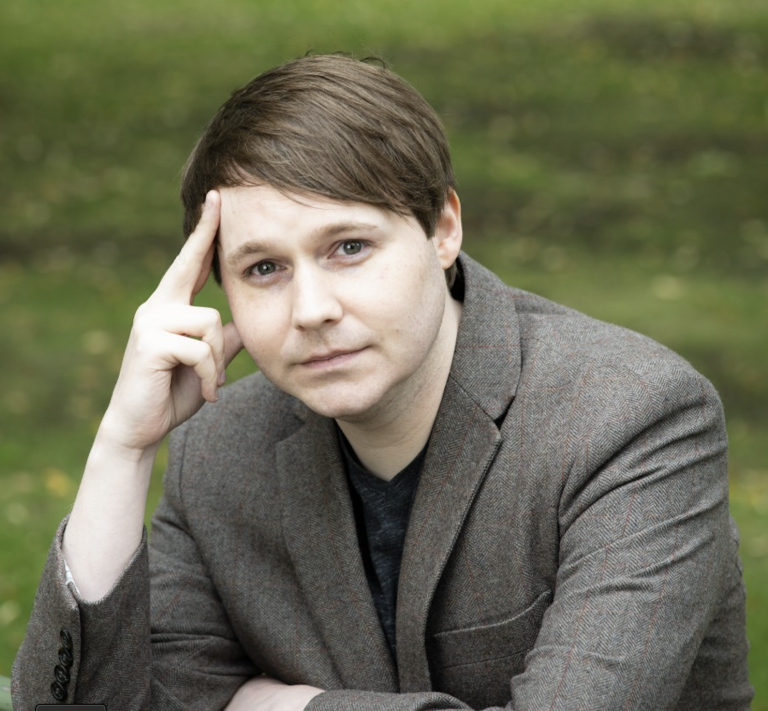
R.T. Mullins (PhD, University of St Andrews). He has published over 50 essays on various topics in philosophical theology related to models of God, philosophy of time, personal identity, the problem of evil, disability theology, the Trinity, and the incarnation. He has published two books, The End of the Timeless God (Oxford University Press, 2016) and God and Emotion (Cambridge University Press, 2020). Mullins has held research and teaching fellowships at the University of Notre Dame, the University of Cambridge, the University of St Andrews, the University of Edinburgh, and the University of Helsinki. When not engaging in philosophical theology, he is often found at a metal show.
Recent Posts
